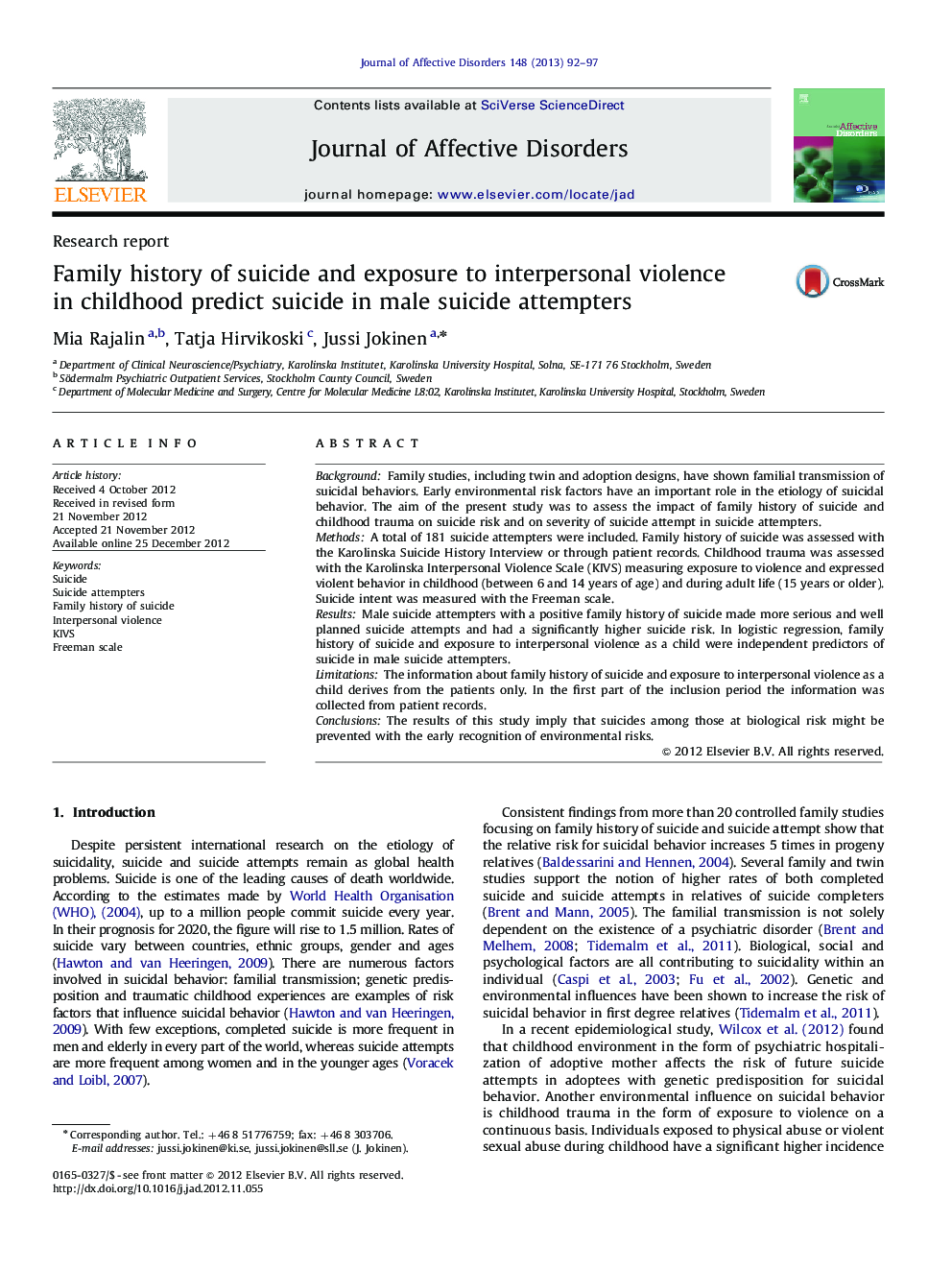| Article ID | Journal | Published Year | Pages | File Type |
|---|---|---|---|---|
| 6234529 | Journal of Affective Disorders | 2013 | 6 Pages |
BackgroundFamily studies, including twin and adoption designs, have shown familial transmission of suicidal behaviors. Early environmental risk factors have an important role in the etiology of suicidal behavior. The aim of the present study was to assess the impact of family history of suicide and childhood trauma on suicide risk and on severity of suicide attempt in suicide attempters.MethodsA total of 181 suicide attempters were included. Family history of suicide was assessed with the Karolinska Suicide History Interview or through patient records. Childhood trauma was assessed with the Karolinska Interpersonal Violence Scale (KIVS) measuring exposure to violence and expressed violent behavior in childhood (between 6 and 14 years of age) and during adult life (15 years or older). Suicide intent was measured with the Freeman scale.ResultsMale suicide attempters with a positive family history of suicide made more serious and well planned suicide attempts and had a significantly higher suicide risk. In logistic regression, family history of suicide and exposure to interpersonal violence as a child were independent predictors of suicide in male suicide attempters.LimitationsThe information about family history of suicide and exposure to interpersonal violence as a child derives from the patients only. In the first part of the inclusion period the information was collected from patient records.ConclusionsThe results of this study imply that suicides among those at biological risk might be prevented with the early recognition of environmental risks.
